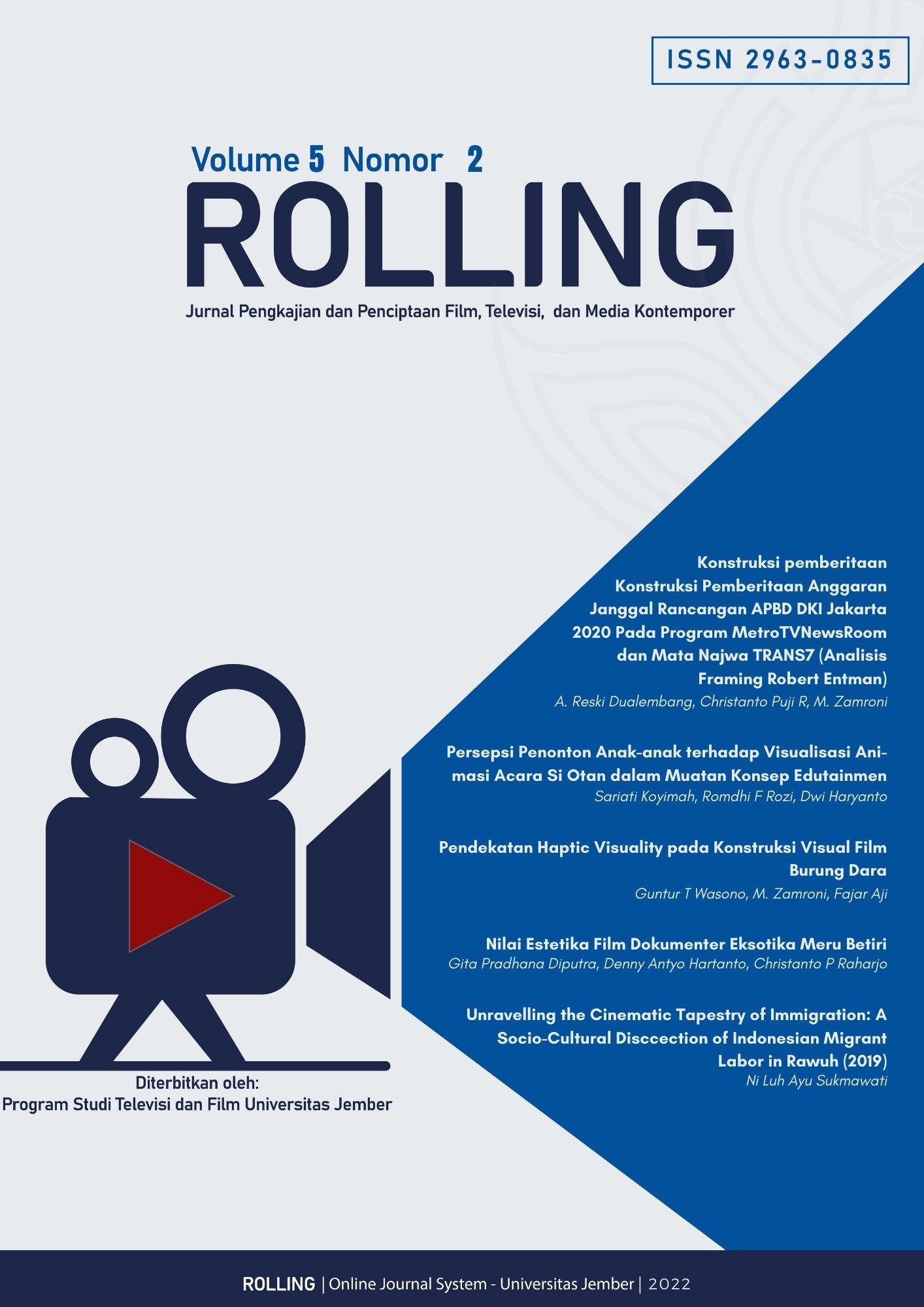Unravelling the Cinematic Tapestry of Immigration: A Socio-Cultural Disccection of Indonesian Migrant Labor in Rawuh (2019)
DOI:
https://doi.org/10.19184/rolling.v5i2.38718Keywords:
rawuh, Immigration, socio-cultural, Bordieu, Indonesian Imigrant laborAbstract
This article addresses the representation of Indonesian migrant labor experiences, particularly from Jember, in local cinema by presenting a multifaceted analysis of the film Rawuh (2019). The study emphasizes the film's depiction of socio-cultural dynamics and its contribution to existing discourses on immigration and migrant labor. Utilizing close textual analysis and scrutinizing mise-en-scène elements such as setting, lighting, costume, and props, the paper probes the film's representation of the rural community's aspirations for upward social mobility, as well as the repercussions of immigration on the characters' lives and societal dynamics. Moreover, by integrating theories by Pierre Bourdieu and pertinent literature on social class, cultural capital, and habitus, the study delves into the film's portrayal of social class and inequality, illuminating the intricate interplay between cultural assets, social stratification, and the quest for distinction. Through a rigorous examination of the film, the study underscores the ways in which Rawuh (2019) intersects with and contributes to ongoing discourses on immigration, labor, and global economic forces, accentuating the film's pertinence to contemporary debates surrounding the experiences and challenges encountered by Indonesian migrant workers from Jember. Based on the analysis also serves as evidence that local films have the potential to offer a more authentic portrayal of their respective societies, as they tend to closely engage with the prevalent issues in their immediate surroundings.
Downloads
Downloads
Published
How to Cite
Issue
Section
License
Permission Authors still has the right to duplicate, download and distribute of the published material as long as the author and source are cited. Any violation found in future of any copyright come in notice, then the author will be responsible for getting sanction in accordance with prevailing regulations.



